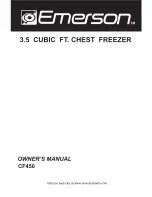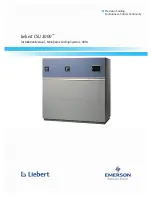
12
o
IMPORTANT:
Do not run the appliance with the thermostat
above number 5 in normal usage otherwise the defrost drain
hole will freeze.
Arranging and storing food in your refrigerator
o
Warm food or evaporating liquids should not be stored in your
refrigerator, as this will increase the humidity inside of the
appliance.
o
All foods should be wrapped or covered, this is particularly
important if the food has a strong flavour. You should use
polythene bags or sheets, aluminium foil, wax paper. Liquids
should be stored in covered containers or bottles.
o
To maximise the space inside of your refrigerator, any excessive
packaging on the food should be removed.
o
Quickly perishable food should be stored at the back of the
refrigerator, which is the coldest part of the appliance.
o
No food items should be allowed to come into contact with the
back wall of the refrigerator.
o
Make sure that you arrange food in such a way that the door can
close completely. Particular attention should be given to bottles
that may protrude when placed on shelves inside the main
section of the refrigerator.
o
Some organic solutions, such as the oils in lemon/orange peel
and acid in butter, can cause damage to the plastic parts
contained inside of the refrigerator.
o
Do not open the refrigerator door too often or leave the door
open for long periods of time, as this will increase the
temperature inside of the appliance.
o
Meat
should be wrapped in polythene bags and then placed on
the glass shelf above the salad drawer.
(Meat should only be stored in this manner for one or two
days at the most).
o
Cold dishes/cooked food
should be covered and can be placed
on any shelf.
o
Fruit and vegetables
should be cleaned thoroughly and placed
in the salad drawer.
o
Cheese and butter
should be placed in airtight containers, or
they can be wrapped in aluminium foil or polythene bags. As
much air as possible should be removed from the bags.
Summary of Contents for BR500
Page 1: ...33U d BR500 Built under larder fridge ...
Page 28: ...28 ...













































